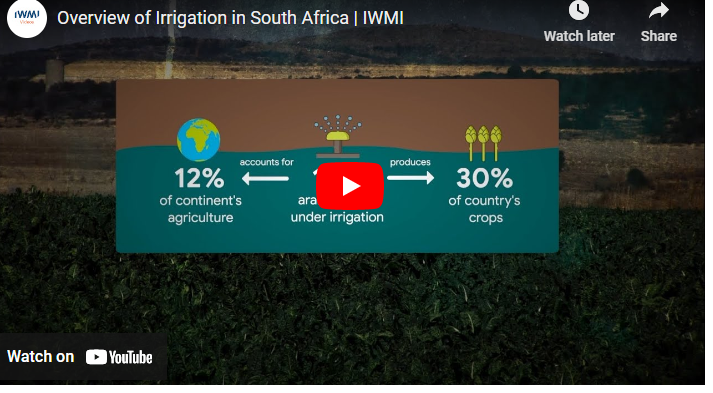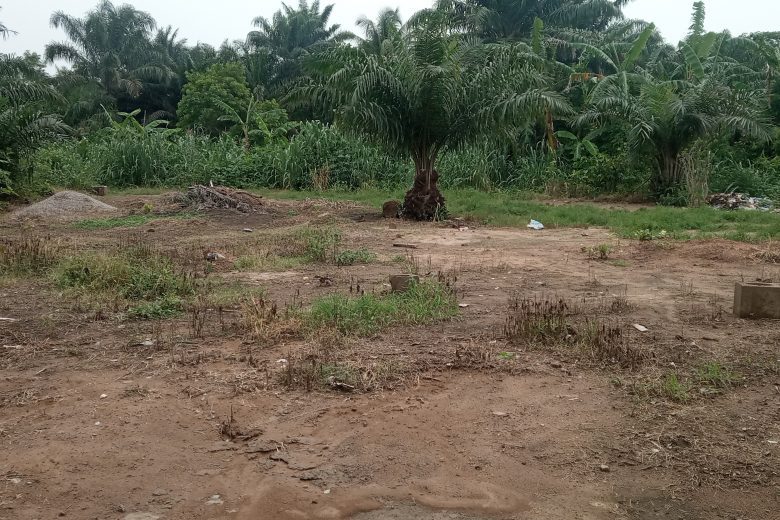Organic plant cultivation in South Africa has been steadily growing in popularity over the past few years. This growth is due to a number of factors such as increasing demand for organic produce, environmental concerns, and the increasing availability of organic inputs.
Organic farming methods emphasize the use of natural inputs and traditional farming practices, such as crop rotation and the use of compost and manure, to produce high-quality crops.
Interestingly, the practice of organic farming in South Africa is gaining attention and many farmers including you reading this informative piece is interested to become organic farmers. For this reason, we have compiled this article providing you and other interested farmers with information on has organic farming.
Organic Plant Cultivation In South Africa
Organic plant cultivation is a method of farming that relies on natural, sustainable practices that promote healthy soil and protect the environment. Organic farmers in South Africa employ a variety of techniques to produce healthy crops and conserve resources. Organic plant cultivation has become increasingly popular in South Africa, with more and more people increasingly looking to grow their own organic produce.
Types of Organic Plant Cultivation in South Africa
There are several types of organic plant cultivation in South Africa. These include
Permaculture
Permaculture is a type of organic plant cultivation that is based on the principles of sustainability and the use of local resources. This type of farming focuses on using natural resources, such as plants, animals, and soils, in ways that benefit the environment and local communities. This form of farming is designed to create a self-sustaining system that is productive, efficient, and ecologically sound.
Agroforestry
Agroforestry is the practice of using trees and other plants to create a multi-layered system of food production in a given area.
Biodynamic Plant Cultivation:
Biodynamic plant cultivation is an alternative form of organic farming that is based on spiritual and ecological principles. The aim of this form of farming is to maintain a harmonious and sustainable relationship between the soil, plants, and animals on the farm. To achieve this, biodynamic farmers use a range of techniques such as crop rotation, cover cropping, composting, and natural pest control.
Natural Farming
Natural organic plant cultivation is a type of farming that focuses on maintaining the health and fertility of soils while avoiding the use of synthetic fertilizers, pesticides, and other chemicals. This type of farming is designed to maintain the natural fertility of the soil and to promote biodiversity.
Urban Organic Plant Cultivation
Urban organic plant cultivation is a type of farming that focuses on growing plants in urban settings, such as rooftops, balconies, and other small spaces. This type of farming often uses container gardening, hydroponics, and other techniques to maximize the use of the available space and resources.
How to Start Organic Plant Cultivation in South Africa
Organic plant cultivation in South Africa requires careful planning and execution. Here are some helpful tips to help you get started:
Step 1. Research the Type of Organic Farming that Best Suits your Land
It is important to research the type of organic farming that best suits your land. Factors to consider include soil type, climate, and the availability of resources such as water and equipment.
Also, research the types of crops that can be grown in your area, such as vegetables, fruits, or herbs. You may need to consult with local experts or agricultural extension services to determine the best type of organic farming for your land.
Step 2. Choose the Right Location
Select a sunny spot with well-drained soil for your organic garden. Consider the climate, access to water, and the availability of space for your garden.
Step 3. Use the Right Soil
When starting an organic garden in South Africa, use soil that is rich in organic matter and natural fertilizers. Compost, manure, and cover crops can help improve fertility and water-holding capacity.
Step 4. Select the Right Seeds
Choose organic, heirloom seeds that have been bred specifically for South African conditions. Choose seed varieties that are known to yield well in your area.
Step 5. Practice Water Conservation Methods
In South Africa, water is a precious resource. Install a water-wise irrigation system to ensure your plants are getting the water they need without wasting it.
Step 6. Natural Pest Control
To protect your organic plants, use natural pest control methods such as companion planting, beneficial insects, and hand-picking.
Step 7: Use Natural Fertilizers and Pest Control Methods
Natural fertilizers and pest control methods are the best way to maintain a healthy and sustainable garden. Natural fertilizers such as compost or manure can provide essential nutrients to plants, and natural pest control methods such as using beneficial insects or companion planting can help keep pests away.
Step 8. Monitor Plant Health
Regularly check your plants for signs of disease or pests. If you notice any issues, act promptly to prevent them from spreading.
Step 9. Harvest Carefully
When harvesting your organic crops, use clean tools and avoid bruising the produce. Wash and store the product properly to ensure it stays fresh.
Benefits and Disadvantages of Organic Plant Cultivation in South Africa
The benefits of organic plant cultivation are numerous, some of which are pinpointed below.
- It is better for the environment. Organic farming reduces the use of chemical fertilizers and pesticides, which can be harmful to the environment.
- Organic farming encourages biodiversity, which helps to protect the biodiversity of South African ecosystems.
- The reduction of environmental pollutants, the avoidance of synthetic pesticides, and the ability to grow fresh, nutritious, and delicious produce that is free from synthetic chemicals.
- The growing of organic produce also helps to reduce the price of food and promotes sustainable agriculture.
Disadvantages of Organic Plant Cultivation in South Africa
Some of the major disadvantages of Organic farming include:
#1. High Start-up Costs
Organic plant cultivation requires farmers to purchase specialised equipment and costly organic materials, such as compost and fertilizers. This can be a significant financial burden for small-scale farmers.
#2. Labour Intensive
Organic farming is labour intensive, as it requires farmers to manually weed and cultivate their crops. It also requires that farmers monitor their crops more closely, which can be time-consuming.
#3. Limited Supply of Organic Materials
Organic plant cultivation relies heavily on organic materials, such as compost and fertilizers. These materials can be expensive and difficult to source in South Africa, making it difficult for farmers to practice organic farming.
#4. Pest and Disease Issues
Organic farming does not rely on chemical pesticides and herbicides, so it is more susceptible to pest and disease issues. This can lead to crop losses, which can be financially devastating for farmers.
#5. Lower Yields
Organic farming tends to yield lower crop yields than more conventional farming practices, as crops are more susceptible to pest and disease issues. This can lead to reduced profits for farmers.
Organic Farming Pdf
Organic farming is a form of agricultural production that focuses on natural processes, such as the use of natural fertilizers, crop rotation, and the promotion of biodiversity. It is an environmentally responsible and sustainable way of producing food, as it does not rely on the use of artificial chemicals and genetically modified organisms.
Organic farming emphasizes the use of renewable resources, such as organic matter, compost, and biological pest control. In addition, organic farming is a socially responsible form of agriculture, as it respects the rights of local communities and the environment.
Organic farming has many benefits for farmers, consumers, and the environment. It can provide higher yields, more nutritious food, and greater environmental protection. Organic farming also promotes local economies, as it supports local farmers and businesses. Furthermore, organic farming can help to reduce the impacts of climate change, as it is a form of sustainable agriculture.
Organic Farm Near Me
There are many organic farms near you, depending on your location. You can search online for “organic farms near me” to find a list of local organic farms. You can also use your local resources, such as the local agricultural extension office or local farmers markets, to find an organic farm near you.
Organic Farming Business Plan Pdf
Organic Farming Business Plan PDF typically includes the following content:
#1. Executive Summary
A summary of the organic farming business plan, including key objectives and goals, the business’s mission statement, and an overview of the products and services being offered.
#2. Company Description
A brief overview of the company, its history, and its current operations.
#3. Market Analysis
An analysis of the organic farming industry and target market, including an overview of the competitive environment and potential market opportunities.
#4. Products and Services
A description of the products and services offered by the business, their value proposition, and pricing strategy.
#5. Financial Plan
A comprehensive financial plan, including projected income statements, cash flow statements, balance sheets, and break-even analysis.
#6. Management and Operations
A detailed description of the management team and operational processes.
#7. Risk Management
A summary of the risks associated with organic farming and strategies for mitigating them.
#8. Action Plan
An action plan outlining the steps to be taken to achieve the business objectives.
#9. Appendices
Any additional supporting documents, such as financial projections, market research reports, and legal documents.
Organic Farming Products
Organic farming products are those that are produced using organic farming methods. Examples of organic farming products include fruits, vegetables, meat, dairy, eggs, grains, nuts, and legumes. Additionally, organic farming products may also include honey, flowers, herbs, spices, and other natural products.
Organic Plants South Africa
Organic plants are widely available in South Africa. There are many nurseries and online stores that specialize in organic plants. Some of the most popular plants include succulents, herbs, vegetables, fruits, and flowers.
Many of these nurseries also offer organic gardening services, advice, and workshops. Furthermore, there are numerous farmers and market vendors who sell organic produce, often at competitive prices.
How To Register Organic Products
Below is the step to register your organic products.
- Research the organic product you wish to register. Understand the regulations, rules, and standards for organic products. If you are unsure about any of the requirements, contact a government agency or certifying body for more information.
- Gather the required documents and information. You will need to provide information about your product, its ingredients, and its production process.
- Contact a certifying body or organization to register your product. This organization will review your product and its information and determine if it meets the necessary requirements for organic certification.
- Once your product is approved, you will receive a certificate of organic registration. This certificate is proof that your product is officially registered as organic.
- Promote your product as organic. You can use the certificate to advertise your product as organic and may be eligible for organic label certifications.
- Maintain your organic certification. You must continue to meet the standards of organic production and must submit reports to the certifying body to maintain your certification.
Organic Farming Project
Organic Farming Project is an initiative to promote sustainable agriculture by encouraging farmers to adopt organic farming methods. It also seeks to create awareness about the benefits of organic farming, such as avoiding the use of synthetic fertilizers and pesticides, and reducing the risk of soil degradation.
Organic Farming Projects also focus on promoting water conservation and increasing crop yields. These projects are being implemented in various parts of the world, particularly in developing countries, with the support of governments, non-governmental organizations, and private institutions.
Conventional Farming
Conventional farming is a type of agricultural production that relies on synthetic fertilizers, pesticides, and herbicides. This type of farming is also known as industrialized or intensive farming. It is the most common form of farming in the developed world.
Conventional farming relies heavily on monoculture (growing a single crop on a large scale) and mechanization to increase production and reduce labor costs. It also relies on chemical inputs and genetic manipulation to increase yield.
Organic Agriculture In Africa
Organic agriculture is gaining popularity in Africa as a means of improving food security and economic development. It is an ecological production system that uses natural processes and resources to produce food and other products sustainably.
Organic agriculture in Africa is based on traditional farming practices, utilizing resources such as crop rotation, composting, and natural pest control. It also involves the use of renewable energy sources and more efficient water management practices.
Organic agriculture has the potential to help reduce poverty, increase food security, and improve the environment in Africa.
Organic Farming In Africa
Organic farming in Africa is a growing trend, as the continent seeks to modernize its agricultural production and increase food production. Organic farming practices involve the use of natural inputs such as compost, manure, and plant extracts, rather than chemical fertilizers, pesticides, and herbicides.
Organic farming can help improve soil fertility, reduce water pollution, and increase biodiversity. It also helps to reduce the use of synthetic chemicals and to produce healthier foods.
Organic farming has been successfully implemented in various African countries, including Kenya, South Africa, and Ethiopia.
Organic Farming In South Africa Pdf
Organic farming in South Africa is gaining momentum as a viable option for sustainable agricultural production. Organic farming is a holistic approach to food production, which takes into account the health of the environment, the quality of the food produced, and the social and economic benefits of the farming system.
Organic farming in South Africa has the potential to contribute to sustainable food production, increase smallholder income, and reduce environmental impact. Additionally, organic farming has the potential to create employment opportunities and improve food security in the country.
Organic Potting Soil South Africa
Organic Potting Soil South Africa is a soil blend specially designed to provide optimal growing conditions for plants. It is an all-natural mix of peat, compost, and sand that is designed to provide the right balance of nutrients, aeration, drainage, and moisture.
This soil mix is perfect for container gardening, raised beds, and indoor plants. It is also an ideal soil for vegetable and herb gardens. It is certified organic, ensuring that no synthetic chemicals are used in the production process.
Organic Potting Soil South Africa is an ideal choice for anyone looking for a sustainable, natural growing medium.
Agricultural Resources Grow In Southern Nigeria
Agricultural resources in Southern Nigeria are abundant and diverse. The region has an ideal climate for growing crops, with plenty of rainfall and good soil quality. Maize, yams, cassava, groundnuts, and vegetables are some of the most common crops grown in the area.
Livestock farming is also popular, and the region is known for its high-quality beef and poultry. In addition, fisheries and aquaculture are important sources of income in the region, with a variety of fish, shrimp, and crabs available for sale.
Weed Plantation In South Africa
Weed plantation in South Africa is a popular activity, due to the country’s favourable climate and natural environment. There are a variety of different weed species available in South Africa to cultivate, including cannabis, tobacco, hemp, and opium poppies.
The most common method of cultivating these crops is through the use of hydroponics, which involves growing plants in a nutrient-rich water solution. This method allows for greater control over the environment and more efficient growth of the plants.
In addition, crop rotation and pest management techniques can be used to increase the yield of the crop. The regulations surrounding the cultivation of these plants vary from province to province, with some areas allowing for recreational use and others only permitting medical use.
Organic Plant Soil
Organic plant soil is a type of soil that is composed of organic matter such as compost, manure, and other organic materials. It is a nutrient-rich soil that is beneficial to the health of plants and other organisms that live in it.
Organic plant soil helps to improve soil structure, fertility, and water retention. It also helps to reduce pests and disease, as well as providing a balanced and healthy environment for plants to thrive in.
Conclusion
Organic plant cultivation in South Africa has become increasingly popular in recent years due to the benefits that it provides to both the environment and the consumer. Organic farming practices promote soil health, reduce the use of pesticides, and provide a nutritious and safe food product. The future of organic plant cultivation in South Africa looks promising, as more farmers are beginning to adopt these practices and the demand for organic products continues to grow.



